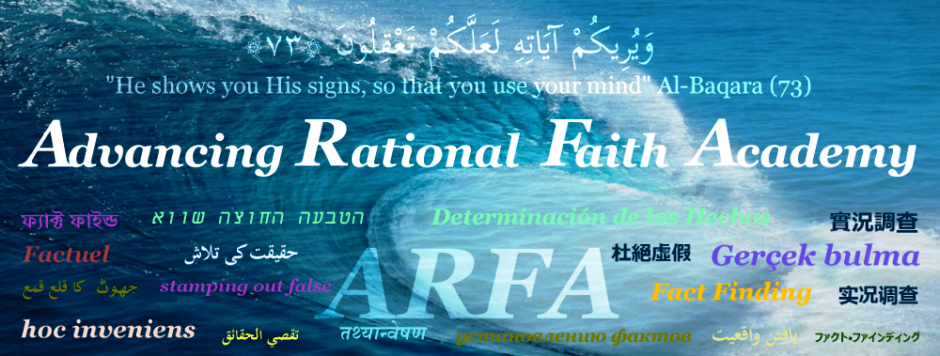Short URL: http://goo.gl/4SpVJd
The Book: The Qur’an and the Aramaic Gospel Traditions (Routledge, 2013) written by Emran El-Badawi, professor and director of the Arab Studies program at the University of Houston
Critical Book Review & Comment
It may be noted that Professor Dr. Emran El-Badawi has accepted the general prevalent view about the claim of the pre-Islamic historicity of Judaeo-Christian literature including current gospels. Professor El-Badawi asserts that the Qur'an is a product of an environment steeped in the Aramaic gospel traditions and contains a "dogmatic re-articulation" of elements from the Aramaic Gospel Traditions for an Arab audience. However there is no mention of serious challenges posed against the claim of the pre-Islamic historicity of current gospels and there is no discussion of how those challenges can be refuted. Here is a summary of the challenge that must be addressed before the existing Judaeo-Christian
Modern age Judaeo-Christian literature has been extensively shown (more detail in the links given below) by literary critics to have originated close to the beginning of the times of the decay of Islamic Civilization ~12 Century. Renowned professional archaeologists specialized in the Palestine area describe in clear terms that the whole story of some Palestinian center, called Jerusalem, with any resemblance with what is described in the current biblical literature has found no archaeological or other supporting primary evidence despite more than a century of active research. The Qur'an clearly and repeatedly states that the Arabians own internal history as heritage of previous messengers, right from Adam, and similarly the Hijazi Makkan Arabic as the purest, undistrorted tongue and quotes verbatim in Arabic e.g what Prophet Suleiman (Solomon) wrote in his letter etc.
Verses al-Nahl 103, Ashshuaraa 198, Fussilat 44 uses the word أَعْجَمِيٌّ ,dumb/speechless/destitute of the faculty of speech, to describe all other languages including Aramaic, assuming it was a known literary language contemporary to the prophetic time. Thus, in the Qur’an other languages are viewed as simply not that cultivated and established in their ability/effectiveness, to carry and convey sophisticated discussions like that of the Qur’an. Arabs would have seen the idea and any incidence of borrowing of foreign literary elements in the Qur'an as it as a fault. The Qur’an reminds us that its Arabic is the direct link to the previous messengers and scriptures and hence best for the objective: قُرْآنًا عَرَبِيًّا غَيْرَ ذِي عِوَجٍ لَّعَلَّهُمْ يَتَّقُونَ ﴿الزمر ٢٨﴾ " It is an Arabic Qur'an free of all crookedness that they may guard against their evil end. (28)" The Qur'anic assertions that all previous scriptures have been distorted and no more pure original words of God found such an overwhelming acceptance that Rabbi Sa'adiah ben Yosef Gaon d 942CE openly prefers Qur'anic accounts over accounts he finds in his ancestral manuscripts. Professor Edwin Johnson d. 1901 shows in detail that by ~ 12th century there was no original Judaeo-Christian literature while these religious communities saw time to revive and assert themselves in the literary world which was completely overwhelmed by Muslim literature. He shows that all Judeo-Christian literature gradually appeared repeating Qur'anic and Muslim historians works with appropriations. Herein lies the origin of the similarities noted by professor Badawi between Judaeo-Christian literature and the Qur'an.
Ehsan Butt, President, Advancing Rational Faith Academy
Jerusalem Hoax خدعة القدس

No comments:
Post a Comment